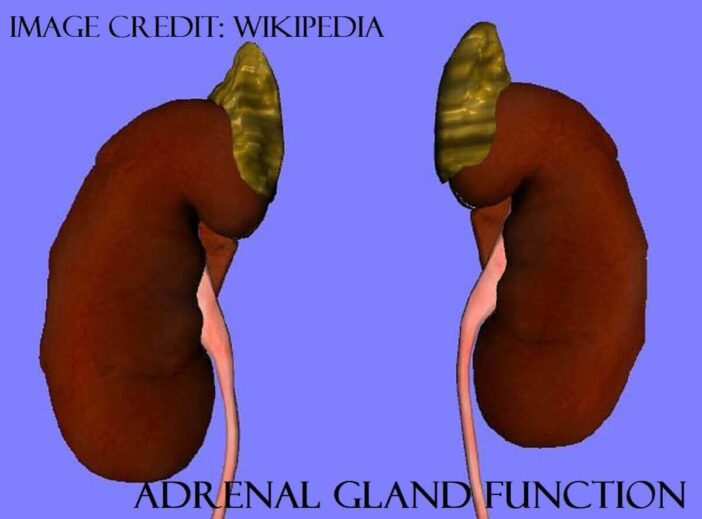
Adrenal Gland Functions: Definition, and Hormones It Produces – Have you heard of the adrenal glands? The adrenal glands are small glands that play a role in producing several types of hormones in the body. Although small, the adrenal glands have a very large function of the body. Therefore, know more about the functions of the adrenal glands following.
Basically, everyone has two adrenal glands. Both glands are located above the kidneys and are approximately half the size of the thumb. Although small in size, the adrenal glands play an important role in producing hormones and support various functions in the body. Thus, disorders of these glands will cause a great impact on the body, for example hormonal disorders.
Adrenal Glands Definition
The adrenal glands are two separate glands located on the surface of the renal excretion apparatus. This adrenal gland is often also referred to by another name, the suprarenal gland. Adrenal itself comes from the Latin term “ad renes“, which means to be near the kidneys. These glands also have a fairly important role in our body.
One type of human hormone produced by the adrenal glands is the hormone adrenaline, which is originally from adrenaline itself. This hormone itself will be aroused and released at the time in a “fight or flight” condition to prepare the body’s reaction to an emergency or frightening.
Both adrenal glands are located on the surface of the kidneys, but the shape is not symmetrical, one of the glands is triangular, while the other gland is shaped like half a moon. The length and width of both are only about 3 inches.
Adrenal Gland Function
The adrenal gland function to release various hormones into the body. Two important hormones released by the adrenal glands are cortisol and adrenaline.
The adrenal glands also play a role in influencing the reproductive organs, playing a role in metabolism, and producing a sympathetic nervous system response.
The adrenal glands are located above the kidneys consisting of two parts, namely the inner medulla and the outer cortex.
The medulla produces epinephrine (adrenaline) while the outer cortex produces cortisol.
As explained above, that this adrenal glands have a fairly important role in the human body, as for these important functions are:
- As a gland that regulates the metabolism of the body as a producer of stress-causing hormones.
- Producing and regulating se**x hormones as well as tes**tosterone hormones in men.
- Producer of estrogen hormones.
- Secreting hormones is very important to maintain the balance of the body.
- Regulates sodium levels and balance of body fluids through mineralocorticoid hormones.
- Increases glucose in the blood as well as reducing inflammation.
- Preparing the body in the face of an emergency, so that the tissues or glands in the body can provide information in the form of stimuli to each other body components.
- Sends signals between nerve cells in the brain.
Hormones produced by the adrenal glands
The word ‘adrenal’ may remind you of the word ‘adrenaline’. It is true, the hormone adrenaline is one of the hormones produced by this gland. The adrenal glands also produce the hormone cortisol, noradrenaline, and aldosterone. Here’s the discussion:
Hormone cortisol
The hormone cortisol or stress hormone is produced in the outer adrenal layer (cortex). Cortisol plays a role in controlling our reactions to stress. Cortisol also plays a role in the control of metabolism, blood sugar, and blood pressure.
Cortisol is antagonistic to insulin and is responsible for breaking down fats and proteins so it plays a role in controlling how the body uses nutrients.
Cortisol can cause weight gain for two reasons.
First, cortisol transfers fat from the liver to the abdominal muscles, and secondly, cortisol increase appetite.
Hormone aldosterone
The hormone aldosterone is also produced in the outer adrenal layer. This hormone plays a role in blood pressure control by maintaining a balance of potassium and sodium in the body.
Adrenaline hormones
Also called the epinephrine hormone, the hormone adrenaline is produced in the inner adrenal layer or medulla. The hormone adrenaline works in collaboration with the hormones cortisol and noradrenaline in regulating the body’s reaction to stress. This hormone makes our heart rate faster, blood flow increases, and stimulates the body to release sugar into energy.
Read also:
How To Slow Heart Rate
Hormone noradrenaline
The hormone noradrenaline is also called the hormone norepinephrine. This hormone works in collaboration with the hormones cortisol and adrenal in regulating the body’s reaction to stressful conditions. The hormone also affects the way the brain pays attention and responds to various events, such as an increase in heart rate, triggers the release of glucose into the blood, and increases blood flow to muscles.
Read also:
Benefits of stress on the body
Thank you very much for reading Adrenal Gland Functions: Definition, and Hormones It Produces, hopefully useful.

![What are Antibodies: 9 Properties, Functions, Structure, and How It Work [Antibody] 2 What are Antibodies: 9 Properties, Functions, Structure, and How It Work [Antibody]](https://markethealthbeauty.com/wp-content/uploads/2020/11/What-are-Antibodies-300x168.jpg)


